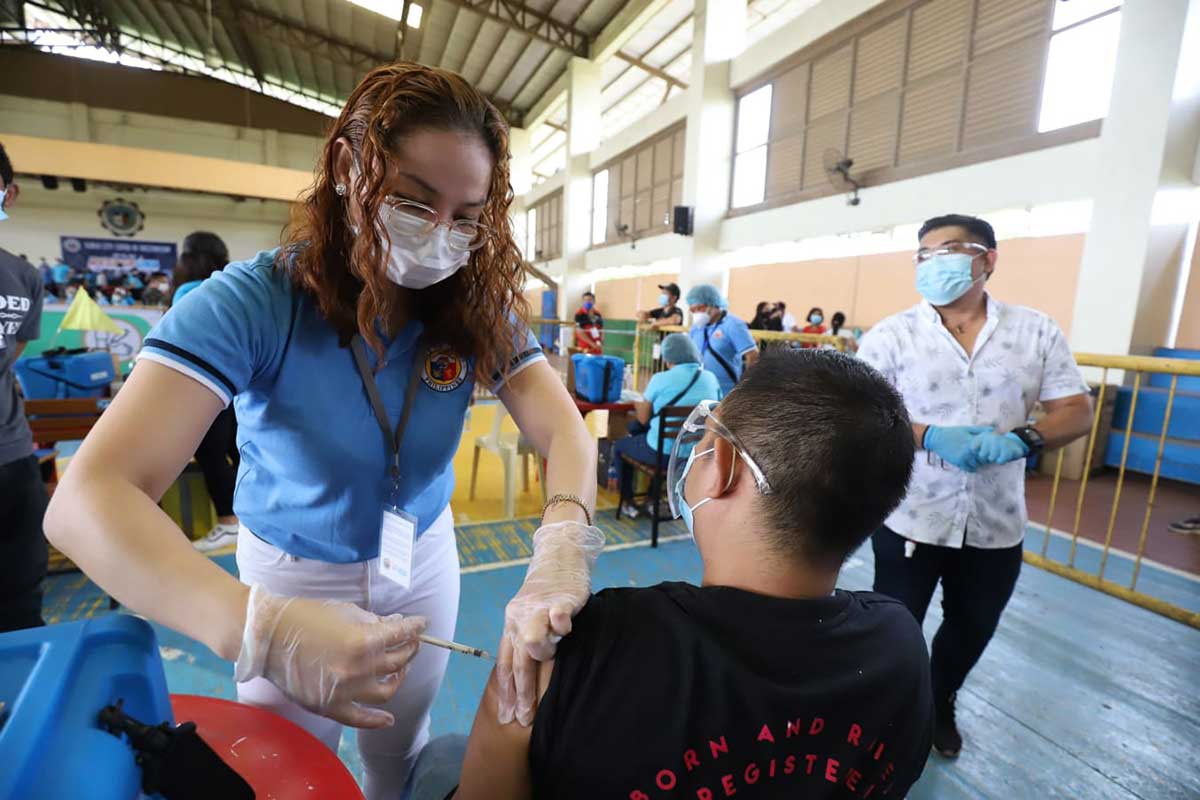
By Joseph B.A. Marzan and ERS
Iloilo City Mayor Jerry Treñas on Sunday said that the city may seek to elevate its community quarantine (CQ) status in response to the “alarming” growth in the number of coronavirus disease 2019 (COVID-19) cases.
Data from the City Health Office-City Epidemiological Surveillance Unit as of May 9 indicated 51 new COVID-19 cases on May 8.
This is the second-highest number of newly confirmed COVID-19 cases reported in a single day after March 18, which saw 66 new cases then.
The new cases include 4 index cases and 46 local transmissions, including 1 new death that was belatedly reported, a 70-year-old female from Brgy. Bakhaw in Mandurriao district who was dead on arrival at a hospital and was swabbed posthumously.
The same data set showed that the city added 205 new COVID-19 cases in the first 8 days of May alone, a 109.18 percent increase from 98 in the first 8 days of April. The latest figure is already 61.19 percent of April’s total of 335 additional cases.
The daily average in the first 8 days of May is 26 cases, a 116.67 percent increase from the daily average in the same period in April at 12 cases.
The 51 new cases included 17 traced to a store selling siomai at Brgy. Nabitasan in La Paz district while six other cases were from houses with confirmed local transmission.
As of 12 pm of May 9, the city has recorded 15 initial cases where nine were traced from another infected workplace at Brgy. Balabago in Jaro district.
Recently, over 20 cases were also traced from the workplace of Milagrosa Shipping Lines in La Paz district.
From May 1 to May 8, the city has recorded 205 total cases. This is 110% higher compared to the only 98 cases recorded in the same period last April.
Currently, the city is monitoring 392 active cases with 40 deaths, as of May 8.
Treñas confirmed to Daily Guardian on Sunday that the spikes were attributed to workplaces, gatherings in houses, and wakes and funerals.
The city government also uploaded an advisory to its Facebook page Sunday with the following recommendations:
-Wakes should not be more than 3 days, and should only be attended and facilitated by immediate family members;
-In cases where there are signs and symptoms of COVID-19, persons should immediately isolate themselves from the rest of their family members, especially from senior citizens, those who are immunocompromised, and those who have comorbidities;
-Observe practicing minimum health protocols including wearing of face masks and face shields, frequent proper handwashing, and use of alcohol when outside;
-Refrain and avoid unnecessary travel outside residences like road trips, and leisure activities on different resorts and tourist destinations, etc.;
-Register for COVID-19 vaccination in designated areas or with their barangay officials;
-Continue practicing minimum health protocols even after their 2nd dose of their COVID-19 vaccines; and
-Barangay officials, compliance teams, and Barangay Health Emergency Response Teams (BHERTS) must help monitor COVID-19 cases and stricter implementation of health protocols even during home quarantining of cases.
The advisory also said that if there is an increase in the number of cases, “We will be compelled to have stricter protocols and executive orders to prevent the increasing number of cases.”
The mayor also sent an additional advisory to Daily Guardian for workplaces with the following recommendations:
-Encourage only 50 percent of working staff to be on duty;
-Work-from-home station for employees with comorbidities, who are pregnant, and who are immunocompromised;
-Ensure strict implementation of health protocols;
-Disinfection of workplace at least 2 to 3 times per week;
-Regular antigen testing as screening for COVID-19 if possible, and Reverse Transcription-Polymerase Chain Reaction (RT-PCR) testing at least per month;
-All employees with cases of signs and symptoms must not report to work but to consult as early as possible to a health doctor;
-Other good practices must be strictly and constantly implemented;
-No unnecessary gatherings outside the workplace or even inside the workplace;
-Eat at respective cubicles or at areas with proper social distancing; and
-Maintaining handwashing and sanitation protocols.
Treñas acknowledged the spike in cases in the city which could lead to requesting the national government to escalate city’s quarantine classification from the more permissive Modified General Community Quarantine (MGCQ).
The strictest level is the Enhanced CQ, followed by the Modified ECQ, and GCQ.
Treñas neither confirmed nor denied that the city had been “lax” in the monitoring of compliance to health protocols, but only cited that most personnel had attended to COVID vaccination activities.
Since October 2020, Iloilo City has remained under MGCQ, the lowest classification of CQ regimes in the country.
“Our COVID team is monitoring this, and we have observed that there is a rise. We are not saying that we will not increase our quarantine classification, but if needed,” said Treñas in a phone interview.
VACCINATION
Treñas said the city government “was making strides” in its COVID-19 vaccination efforts after drawing an average of 1,500 inoculations per day.
The mayor said that they have already finished with the A1 priority group (medical frontliners), and is now moving forward to other vaccination priority groups.
“We have finished with group A1, and what we are doing right now is for groups A2, A3, and A4. We are doing them all together at the same time because we don’t want people to wait for a longer period of time until they get vaccinated,” he said.
Treñas said the daily target is 2,000 vaccinations and he hopes to increase that to 5,000 when the vaccines they ordered arrive.
“We are training people [for vaccination] so we can reach 5,000 vaccinations per day when the vaccines we ordered arrive. We will be given up to 100,000 per month, and we estimate that we need to do 5,000 per day,” the mayor said.
The city government ordered a total of 700,000 doses of COVID-19 vaccines, with 600,000 of AZD1222 from British pharmaceutical company AstraZeneca, and 100,000 of NVX-CoV2373 from American vaccine development company Novavax.
Treñas said they are also expecting additional doses of COVID-19 vaccines from the national government, which received 1.5 million doses of Coronavac purchased from China, and 2 million doses of AZD1222 donated by the United States government via the global vaccine facility COVAX.
The city may also be receiving a portion of the 194,000 doses of Pfizer and BioNtech’s BnT162b2 vaccine this month according to the mayor.
As of this writing, between all the vaccines the city government ordered, received, or are set to receive, only the Novavax vaccine has no Emergency Use Authorization (EUA) from the Food and Drug Administration (FDA).




















